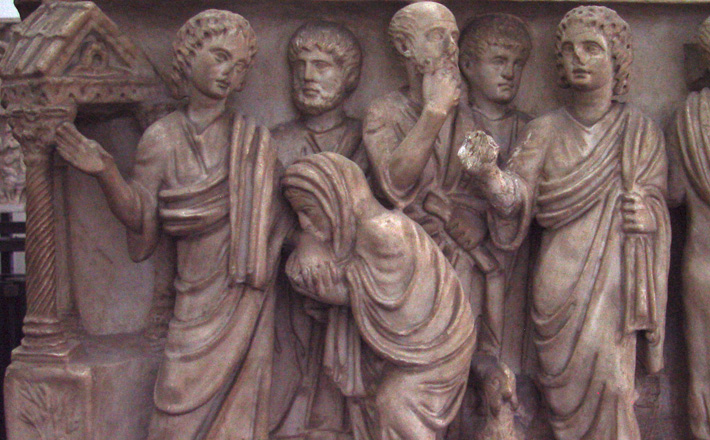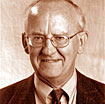Commentary on Isaiah 58:9b-14
If you have ever attended a Friday evening synagogue service, you know that at the conclusion the rabbi will often say, “We invite our visitors to join us for an Oneg Shabbat after the service in the community room.”
You discover that an Oneg Shabbat is a post-worship social hour where there is good food, good wine, good conversation, maybe even some good music.
I was reminded of oneg shabbats I have attended when I read today’s text in Hebrew, “if you call the Sabbath (shabbat) a delight (oneg) … ” The Sabbath. That’s what this text is about. The Hebrew word Shabbat occurs twice in v. 13.
Problems in the post-exilic community
While today’s text is found in the Book of Isaiah, these words are not associated with the prophet Isaiah who worked in Jerusalem in the 700’s BCE. Most of the material in the first part of the Isaiah book (chapters 1-39) does come from that period. But biblical scholarship has demonstrated that chapters Isaiah 40-66 are clearly from a later time. Jerusalem, destroyed in 587 BCE, lay in ruins (44:26, 28; 54:3; 58:12). Cyrus the Persian who captured Babylon in 539 BCE is on the scene (44:28; 45:1). The Jewish people are in Babylon (48:20; 52:11,12). As we study chapters 40-66 we discover that the people have returned from exile in Babylon and are now a small group gathered around Jerusalem, hoping to get the temple rebuilt for worship (the work of Haggai and Zechariah), a wall put around the city for security (Nehemiah) and religion back into the lives of all the people (Ezra’s concern).
A careful reading of Isaiah 58 gives us a picture of the problems in the community. Their relationship to their God was not what it should be. The people were fasting, but God didn’t seem to pay attention (v.3). In fact, what should have been days of worship turn out to be times of fighting and hypocrisy (vv.4-5) And they were not observing the Sabbath days, but using them for their own interests and gain (58:13-14).
Nor was their relationship to their neighbor what it should be. Wealthy citizens were oppressing their workers and were not paying them minimum wages! (vv. 6-7). People with property and money should be caring for the hungry and the homeless in their community, but they neglected them. Neglecting worship and day-by-day religion, commercializing the Sabbath, not caring for the poor and needy — such was the situation the prophet had to address.
Remember the Sabbath day
One of the marks of the Jews during this time was observation of the Sabbath. Ever since the days of Moses, the Israelite people were to respond to what God had done for them (the Exodus) by keeping the Ten Commandments. The third of these was “Remember the Sabbath day, to keep it holy (Exodus 20:1-17). The people were to do no work on the Sabbath. The Hebrew word for Sabbath means to stop. When the hostile enemies asked Nehemiah to stop building the wall around Jerusalem he said, “I am doing a great work and I cannot come down. Why should the work stop (Hebrew sabbath) while I leave it to come down to you? (Nehemiah 6:3).
In fact, that commandment went further back than the time of Moses. According to Genesis 1, God took six days to make the heavens and the earth and then stopped his work on the seventh day. “God didn’t show up at the office” as Walter Brueggemann puts it somewhere.
In the days when Nehemiah was governor, when the people bought and sold on the Sabbath he just shut them all down! (Nehemiah 13;15-22).
But the Sabbath should be a delight, as Isaiah 58:13 puts it.
An old Jewish story tells of a family where the father never missed attending synagogue on Friday evenings, even though he claimed that he didn’t believe in God. When his children asked him about this strange behavior he said, “My friend Garfinkel believes in God. In fact, he goes to synagogue every Friday evening to talk with God. I go to talk with Garfinkel.”
Gathering for worship, even for fellowship after worship, was part of the Oneg Shabbat, the Sabbath delight, as Isaiah 58:13 put it.
One of the American musician Duke Ellington’s most beautiful compositions is called “Come Sunday.” He originally wrote it for an opera, which told of the plight of the African American people in the south. They were overworked and underpaid. But they were allowed to gather and sing and worship each Sunday. The refrain of the song states “But Sunday, that’s the day I’m waiting for … ”
How would the people of Judah, the Jews, survive after their temple and their capital city had been destroyed? Two things held them together. One was their holy day, the Sabbath. The other was their language, Hebrew. In the post-exilic period Nehemiah discovered that the Jews were not seeing to the Hebrew education of their children. He argued with them, cursed them, beat them and pulled out their hair (Nehemiah 13:23-25; a passage I customarily read to my beginning Hebrew students).
The sense of Sabbath for our time
The busy citizens of the 20th century and beyond have coined a word for a new malady: “workaholism.” A workaholic is a person who can’t stop (take a Sabbath from) working and can’t enjoy the delight of the Sabbath.
One of my teachers once said of his own busy life, “It was one of those nights when I was lying awake in my bed, baby-sitting the world.” He couldn’t trust God to watch over things for one night!
I once heard Rabbi Kushner say, “I’ve called on many people on their death beds — but have yet to hear one say, “I wish I’d spent more time on my business.” Such people missed the chance to experience the delight of stopping their work and of discovering the delight of worship, and of the Sabbath.


August 21, 2016